COVID IS OVER! … If You Want It
Twilight in Concentration Camp 2.0: Prescient Premonitions from André Gregory to CJ Hopkins
“As nightfall does not come all at once, neither does oppression. In both instances, there is a twilight. And it is in such twilight that we all must be aware of change in the air—however slight—lest we become unwitting victims of the darkness.”
Forty years ago, Wallace Shawn and André Gregory lobbed a film into the cinematic stratosphere unlike any other then or since—a film that, on the surface, sounds like the dullest movie plot in history: two men meet for a meal and have a conversation.
And it is the most riveting quasi-fictional conversation ever recorded on celluloid.1
It is a film that slashes to the heart of existence—from the quotidian delight of a cold cup of coffee surviving the night without insect encroachment to a mock death and resurrection ritual. You come away feeling, as Emily Dickinson puts it, “physically as if the top of [your] head were taken off.”
During one scene of Louis Malle’s coruscating My Dinner with André, André shares his encounter with an eighty-four-year–old English tree expert, who prophesies:
“I think that New York is the new model for the new concentration camp, where the camp has been built by the inmates themselves, and the inmates are the guards, and they have this pride in this thing that they’ve built—they’ve built their own prison—and so they exist in a state of schizophrenia where they are both guards and prisoners. And as a result, they no longer have—having been lobotomized—the capacity to leave the prison they’ve made or even to see it as a prison.”
André continues, “And then he went into his pocket, and he took out a seed for a tree, and he said, ‘This is a pine tree.’ He put it in my hand and he said, ‘Escape before it’s too late.’”2
Concentration Camp 2.0
Are we living in Concentration Camp 2.0? In the updated version, psychologically battered inmates amble around in a state of permanent learned helplessness, a brigade of Karens standing guard, eager to inform on anyone who demonstrates a faint alertness.
When they reach the invisible boundaries of their self-constructed walls, they stop. When the atmosphere grants permission to proceed, they tiptoe tentatively forward, cringing in anticipation of the thunderclap order to halt and reverse. And it comes. It almost always comes—but at random intervals, nerves fraying as they remain suspended in a state of perpetual tension, anxiety, and terror until the next shock.
After enough waves of dread, they forget. They forget what it was like before, and they forget what it was like ahead. They forget there is an outside. They forget they have the capacity to stride through those phantom walls. They forget they have agency over their own lives. They forget they possess the power of a collective, resounding “NO!”
Open-Air Prison
In another enthralling conversation—this time a real-life, contemporary one between hysterical Swiftian satirist CJ Hopkins and intrepid Planet Lockdown documentarian James Patrick captured by OVALmedia—Hopkins observes that the language of “lockdown” comes from prison (@20:00):
“You brought up the term ‘lockdown.’ Where does this term come from? It comes from prisons. When do you lock down in a prison? When the prisoners get too rowdy.”
James Patrick then relays what a friend said when the lockdown first started, “They’ve turned the whole world into an open-air prison.”
Two conversations between two men about self-imposed incarceration—four decades apart. The methods have become more sophisticated, but the principle remains the same: They with a capital ‘T’ are relying on you to enforce your own captivity. And the easiest way to do that is to ensure you never realize you’re enchained.
Submitting—with Pleasure
Tell me if this sounds familiar:
“We didn’t love freedom enough. And even more—we had no awareness of the real situation. We spent ourselves in one unrestrained outburst in 1917, and then we hurried to submit. We submitted with pleasure!”
—Aleksandr Solzhenitsyn, The Gulag Archipelago: Volume 1 (emphasis in original)
Far too many have submitted—with pleasure—to the ever-accelerating restrictions on our inalienable rights, clueless that such capitulations are historically followed by enslavement.
The compliant mock the contrarians, wearing their badges of obeisance with pride. They dutifully stand six feet apart, refrain from visiting unvaxxed family and friends, permit the closure of small businesses while patronizing multinational megacorporations, ridicule those who choose bodily autonomy over subjecting themselves to experimental genetic modification (all the while refusing, in a supreme irony, to let GMO Frankenfoods touch their precious lips), acquiesce to edicts requiring businesses to become complicit in the enforcement of their papers-please regulations … and then later, when the tyranny becomes too visible to ignore, they will marvel at how it all came about.
Solzhenitsyn captures the psychology that muzzles onlookers and even detainees during the early stages of mass arrests:
“The majority sit quietly and dare to hope.… At what exact point, then, should one resist? When one’s belt is taken away? When one is ordered to face into a corner? When one crosses the threshold of one’s home? An arrest consists of a series of incidental irrelevancies, of a multitude of things that do not matter, and there seems no point in arguing about any one of them individually—especially at a time when the thoughts of the person arrested are wrapped tightly about the big question: ‘What for?’—and yet all these incidental irrelevancies taken together implacably constitute the arrest.”
Winning Our Enslavement
Étienne de La Boétie, cherished friend of Michel de Montaigne, puzzles over why people lazily submit to despotism in his 1552 work, The Politics of Obedience: The Discourse of Voluntary Servitude:
“It is incredible how as soon as a people becomes subject, it promptly falls into such complete forgetfulness of its freedom that it can hardly be roused to the point of regaining it, obeying so easily and so willingly that one is led to say, on beholding such a situation, that this people has not so much lost its liberty as won its enslavement. It is true that in the beginning men submit under constraint and by force; but those who come after them obey without regret and perform willingly what their predecessors had done because they had to. This is why men born under the yoke and then nourished and reared in slavery are content, without further effort, to live in their native circumstance, unaware of any other state or right, and considering as quite natural the condition into which they were born.”
Numbed into complacency by an infinite array of Huxleyian divertissements, MSM disinformation bombardments, and social media bandwagoning crusades and availability cascades (both informational and reputational), today’s populace scarcely comprehends they are unfree, having been born into bondage and been reared in conformity from kindergarten to university. How are they to perceive the tightening of their shackles when they’re oblivious to their existence?
Twilight: Dusk or Dawn?
Yes, the oncoming night looks bleak, a midnight black that inks over our minds, imposing a communal amnesia that blots out memory of concepts like “free will,” “independence,” and “resistance.”
But twilight can precede dawn as well as dusk.
There are glimmers of light cracking through the mass delusion, reminding us the only reason it persists is we permit it to—like when 50,000 Italian restaurants reopened en masse in defiance of lockdown orders. Or when states like South Dakota never locked down, or when Sweden initially resisted global pressures to step in line with the rest of the world.
These rare Spartacus moments of peaceful defiance remind us the many drastically outnumber the few. Instead of watching gobstruck while the kapos pitch dissidents into solitary confinement, we could raise our voices together in a roaring chorus of “NO” and cut our spider-silk manacles.
De La Boétie reveals the secret:
“You can deliver yourselves if you try, not by taking action, but merely by willing to be free. Resolve to serve no more, and you are at once freed. I do not ask that you place hands upon the tyrant to topple him over, but simply that you support him no longer; then you will behold him, like a great Colossus whose pedestal has been pulled away, fall of his own weight and break into pieces.”
If we can gain a critical mass of awareness about the consensual nature of our subjugation, the puny cadre of autocrats manufacturing our mass subservience just might fall, like Wile E. Coyote plummeting to earth the moment he realizes he is floating mid-air.
Five Finger Death Punch’s Living the Dream video paints a vivid portrait of what awakening to tyranny might look like:
Audacious storytelling like this reminds us of the power of art to jar the sleeping to wakefulness.
COVID IS OVER! … If You Want It
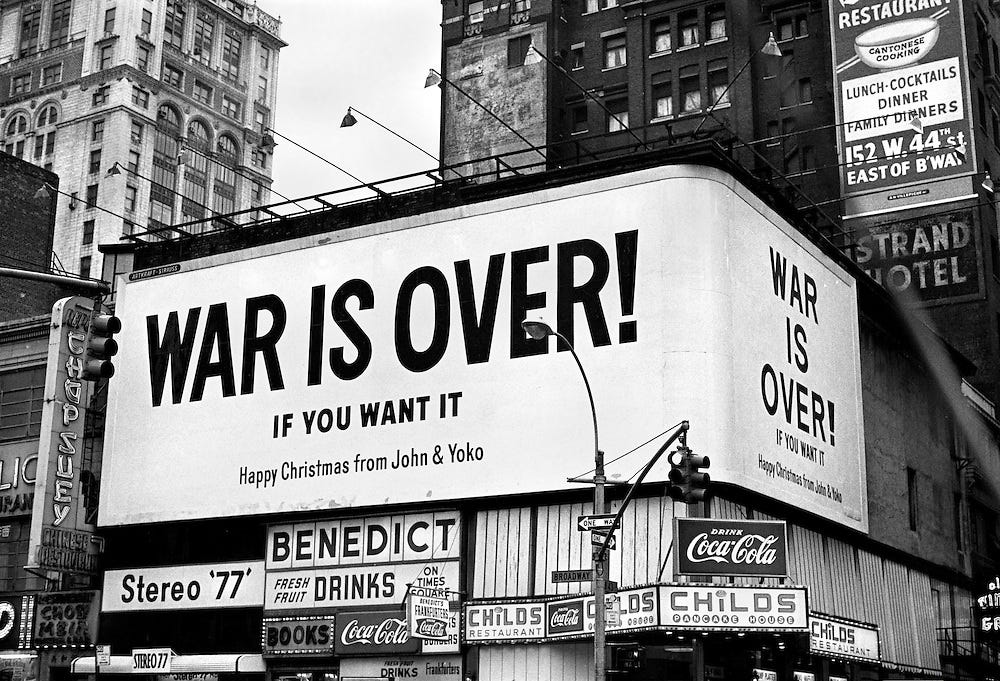
John and Yoko’s message resonates even more deeply in the context of a psychological war of mass hypnosis. Instead of napalm, Agent Orange, and cluster bombs, we’re facing primarily conceptual warfare today. Seemingly more innocuous, it is potentially as lethal. Yet it is far easier to defeat, if we can break the spell.
The COVID Reign of Terror Is Over. If You Want It.
Here’s a seed. Escape before it’s too late.
Practice Resurrection
I can think of no more fitting poem to spark this Great Escape than Wendell Berry’s revolutionary 1973 poem:
Manifesto: The Mad Farmer Liberation Front
by Wendell Berry, Collected Poems: 1957–1982
Love the quick profit, the annual raise,
vacation with pay. Want more
of everything ready-made. Be afraid
to know your neighbors and to die.
And you will have a window in your head.
Not even your future will be a mystery
any more. Your mind will be punched in a card
and shut away in a little drawer.
When they want you to buy something
they will call you. When they want you
to die for profit they will let you know.
So, friends, every day do something
that won’t compute. Love the Lord.
Love the world. Work for nothing.
Take all that you have and be poor.
Love someone who does not deserve it.
Denounce the government and embrace
the flag. Hope to live in that free
republic for which it stands.
Give your approval to all you cannot
understand. Praise ignorance, for what man
has not encountered he has not destroyed.
Ask the questions that have no answers.
Invest in the millennium. Plant sequoias.
Say that your main crop is the forest
that you did not plant,
that you will not live to harvest.
Say that the leaves are harvested
when they have rotted into the mold.
Call that profit. Prophesy such returns.
Put your faith in the two inches of humus
that will build under the trees
every thousand years.
Listen to carrion — put your ear
close, and hear the faint chattering
of the songs that are to come.
Expect the end of the world. Laugh.
Laughter is immeasurable. Be joyful
though you have considered all the facts.
So long as women do not go cheap
for power, please women more than men.
Ask yourself: Will this satisfy
a woman satisfied to bear a child?
Will this disturb the sleep
of a woman near to giving birth?
Go with your love to the fields.
Lie down in the shade. Rest your head
in her lap. Swear allegiance
to what is nighest your thoughts.
As soon as the generals and the politicos
can predict the motions of your mind,
lose it. Leave it as a sign
to mark the false trail, the way
you didn’t go. Be like the fox
who makes more tracks than necessary,
some in the wrong direction.
Practice resurrection.
© Margaret Anna Alice, LLC
Are you willing to spend 16.4 cents/day (annual) or 19.7 cents/day (monthly) to help me continue fighting tyranny and democide? You gain access to premium content like “rolling” interviews, podcasts, Behind the Scenes, and other bonus content:
Substack now offers group subscriptions! Purchase 4 or more subscriptions for a group, and you get 10% off!
If you’d like to make a one-time donation, you can buy me a Ko-fi:
IPAK-EDU
See the following post for details on IPAK-EDU curricula, and please use my affiliate code (MAA1IPAK) to register for any courses you decide to take:
If you feel the work I am doing is worthwhile and want to make it possible for me to spend more time writing and researching in my aim to unmask totalitarianism and awaken the sleeping before tyranny triumphs, please consider supporting me, whether it be by subscribing, buying me a Ko-fi, or sharing my posts. I thank you for reading, thinking, sharing, and supporting my work in whichever ways you choose.
Want to make a one-time donation? You can treat me to Ko-fi:
Prefer to donate crypto? You can send Bitcoin using the following code:
bc1ql706rr7vj7c7nzxnqfp9rldw8ddfc20f492jk0
Since crypto transfers are anonymized, I won’t know about your donation. Please drop me an email by responding to any of my newsletters if you’d like to alert me to your generous gift.
Remember, a subscription to Margaret Anna Alice Through the Looking Glass makes for an intellectually adventurous gift down the rabbit-hole!
Note: Purchasing any items using Amazon affiliate links included in my content will further support my efforts to unmask tyranny.
Admittedly, Johnny and Brian’s apocalyptic colloquy in Mike Leigh’s Naked makes for a compelling contender:
I want to express a special thank-you to Tike, a commenter on the OffGuardian version of this article, who astutely pointed out the larger, highly relevant context for this conversation by sharing an expanded version of the clip.
He also graciously shared a link to the film’s full transcript and excerpted these percipient lines from the extended clip:
André: Okay. Yes. We’re bored. We’re all bored now. But has it every occurred to you, Wally, that the process that creates this boredom that we see in the world now may very well be a self-perpetuating, unconscious form of brainwashing created by a world totalitarian government based on money? And that all of this is much more dangerous than one thinks. And it’s not just a question of individual survival, Wally, but that somebody who’s bored is asleep? And somebody who’s asleep will not say “no”?
André: See, I keep meeting these people, I mean, uh, just a few days ago I met this man whom I greatly admire, he’s a Swedish physicist, Gustav Björnstrand, and he told me that he no longer watches television, he doesn’t read newspapers, and he doesn’t read magazines. He’s completely cut them out of his life because he really does feel that we’re living in some kind of Orwellian nightmare now, and that everything that you hear now contributes to turning you into a robot.
André: And when I was at Findhorn, I met this extraordinary English tree expert who had devoted his life to saving trees. Just got back from Washington, lobbying to save the redwoods, he’s 84 years old, and he always travels with a backpack cause he never knows where he’s gonna be tomorrow. And when I met him at Findhorn, he said to me, “Where are you from?” and I said, “New York.” He said, “Ah, New York. Yes, that’s a very interesting place. Do you know a lot of New Yorkers who keep talking about the fact that they want to leave, but never do?” And I said, “Oh, yes.” And he said, “Why do you think they don’t leave?” I gave him different banal theories. He said, “Oh, I don’t think it’s that way at all.”
André: He said, “I think that New York is the new model for the new concentration camp, where the camp has been built by the inmates themselves, and the inmates are the guards, and they have this pride in this thing they’ve built. They’ve built their own prison. And so they exist in a state of schizophrenia where they are both guards and prisoners, and as a result, they no longer have, having been lobotomized, the capacity to leave the prison they’ve made or to even see it as a prison.” And then he went into his pocket, and he took out a seed for a tree and he said, “This is a pine tree.” He put it in my hand and he said, “Escape before it’s too late.”
André: See, actually, for two or three years now, Chiquita and I have had this very unpleasant feeling that we really should get out. That we really should feel like Jews in Germany in the late thirties. Get out of here. Of course, the problem is where to go, cause it seems quite obvious that the whole world is going in the same direction. See, I think it’s quite possible that the 1960s represented the last burst of the human being before he was extinguished and that this is the beginning of the rest of the future now, and that, from now on there’ll simply be all these robots walking around, feeling nothing, thinking nothing. And there’ll be nobody left almost to remind them that there once was a species called a human being, with feelings and thoughts, and that history and memory are right now being erased, and soon nobody will really remember that life existed on the planet.

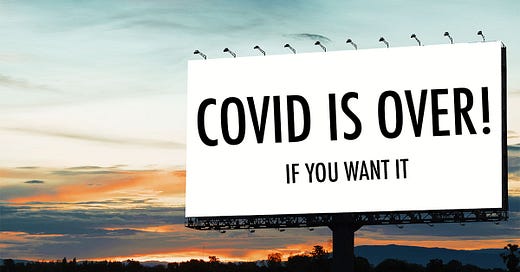



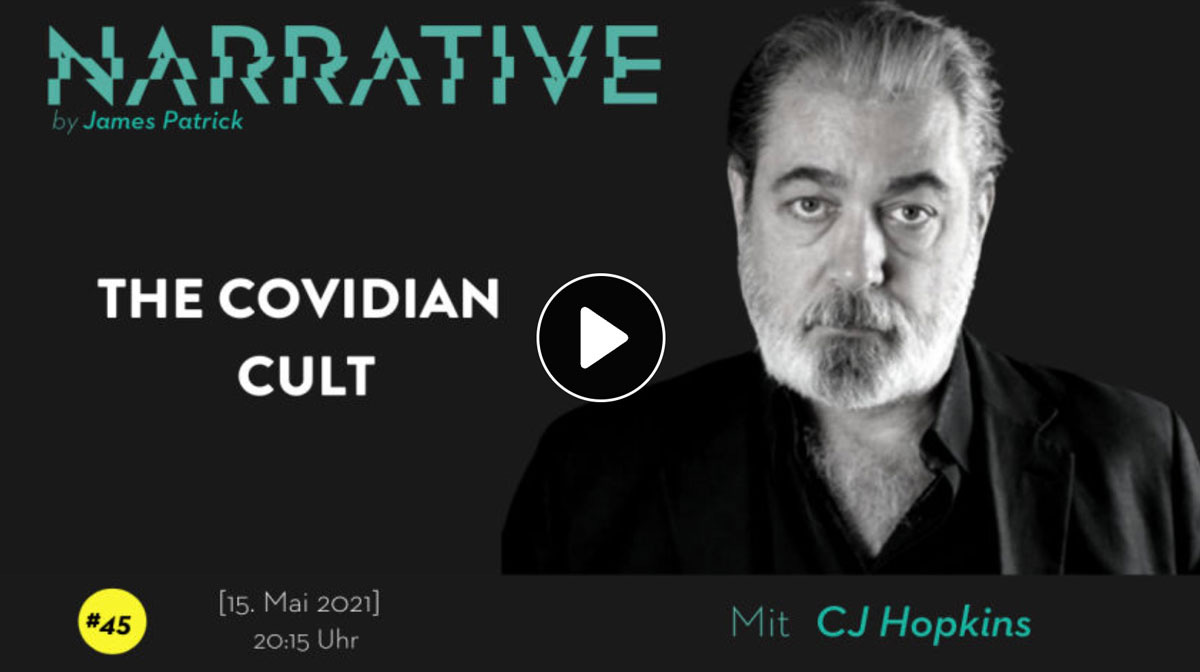

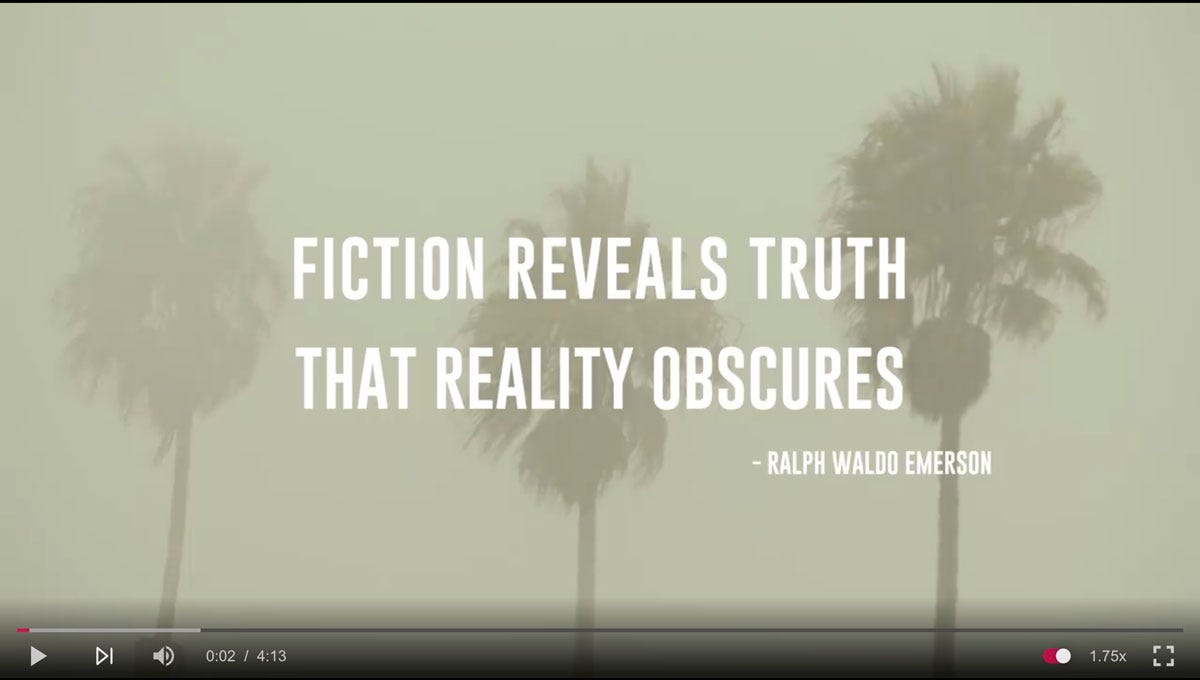


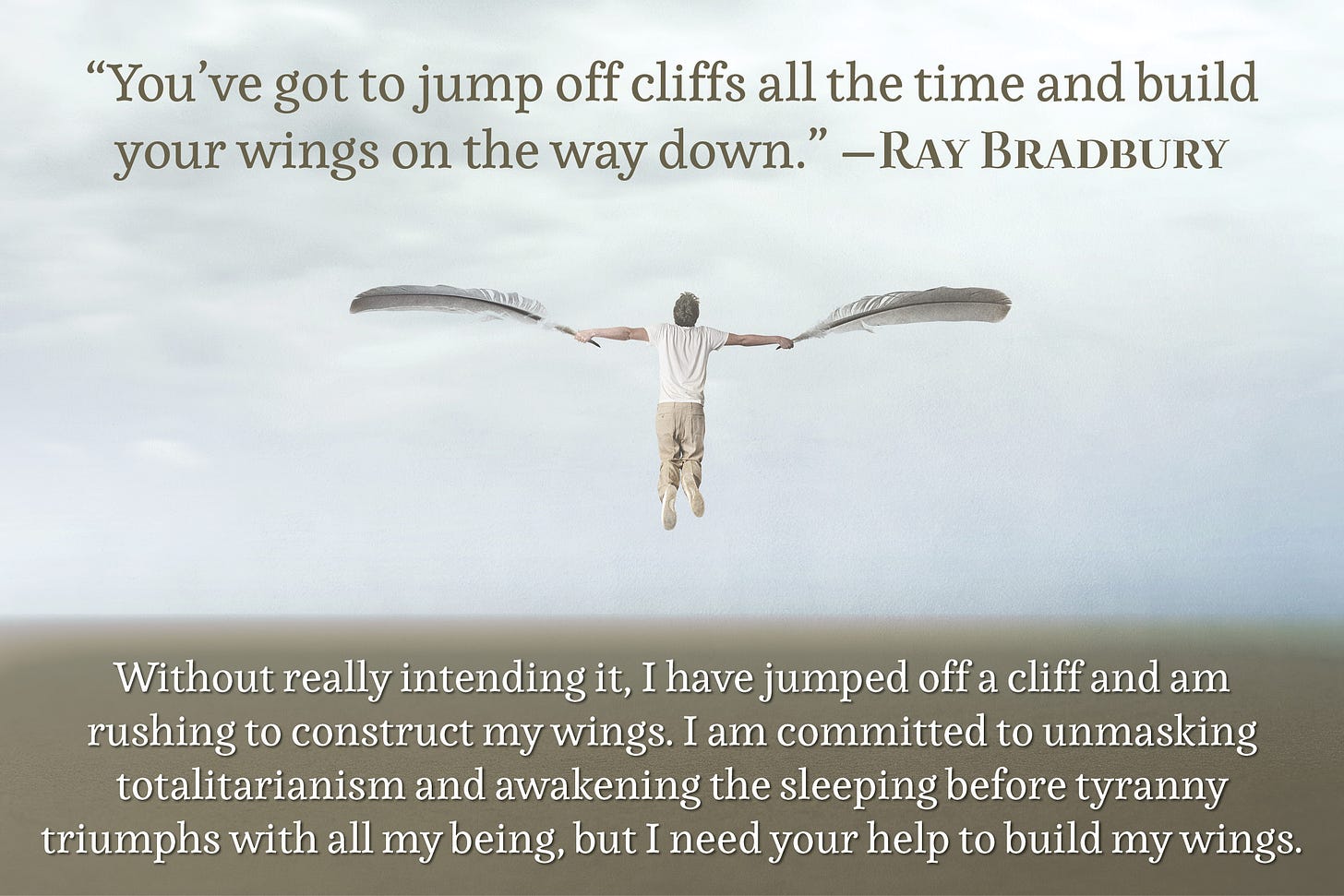





I really really love this post--so much here. Thank-you. And I esp love the Wendell berry poem--been a fan of his for many years.
So, friends, every day do something that won’t compute...
Wow, Margaret. I just read this as per your link. For a start, MDWA is on my list for tonight! But you really captured the essence of not just the movie thematic but the sixties zeitgeist, the last burst of the human being, as Andre put it. I remember John & Yoko's War is Over so clearly and their Bed-In. My God, what happened to us? The starburst of creativity in that era, including the 70s, was such an outpouring of love and humanity and the essential need for personal freedom. I grew up during that time and, coincidentally, spent many summers of my youth at Findhorn as my brother and his wife were some of the originals there.
You've not only captured that spirit but included so many reinforcements of basic human rights, dignity and autonomy, such as Solzhenitsyn, Berry, the prosaic Le Boétie and the inimitable CJ Hopkins (whom I love for sheer force of satire).
As you point out in your central theme, ultimately it's our choice. War is over, if we want it. The question that remains, irritating like a burr, do we really want it?